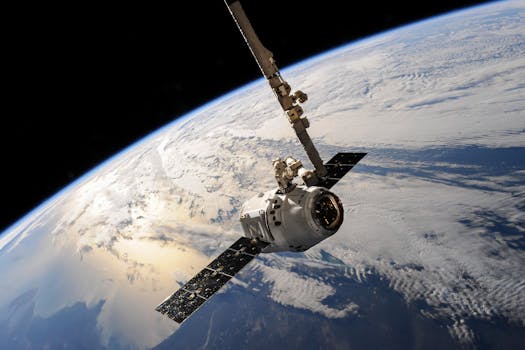The Future of Satellites: Revolutionizing Global Connectivity

The Future of Satellites: Revolutionizing Global Connectivity
The future of satellites is looking brighter than ever, with rapid advancements in space technology transforming the way we communicate, navigate, and understand our planet. As we continue to push the boundaries of space exploration, satellites are becoming increasingly important for global connectivity, earth observation, and a wide range of other applications. In this article, we will explore the future of satellites and how they are revolutionizing the way we live and work.
The future of satellites starts with the concept of global connectivity. With the increasing demand for high-speed internet and reliable communication networks, satellites are playing a crucial role in providing connectivity to remote and underserved communities around the world. Companies like SpaceX, OneWeb, and Amazon Kuiper Systems are launching constellations of satellites into low Earth orbit, providing fast and affordable internet access to millions of people. This is not only bridging the digital divide but also enabling new opportunities for economic growth, education, and healthcare.
Advancements in Space Technology
Advancements in space technology are driving the future of satellites. New materials, designs, and manufacturing techniques are making satellites lighter, more efficient, and cost-effective. The use of reusable rockets, such as those developed by SpaceX, is also reducing the cost of launching satellites into orbit. Additionally, advancements in propulsion systems, such as electric propulsion and advanced ion engines, are enabling satellites to operate for longer periods and travel farther distances.
Another key area of advancement is in the field of earth observation. Satellites are equipped with high-resolution sensors and cameras, allowing them to collect vast amounts of data about our planet. This data is being used to monitor climate change, track natural disasters, and manage natural resources. For example, the European Space Agency’s Copernicus program is using satellites to monitor deforestation, track ocean currents, and predict weather patterns.
Applications of Satellites
Satellites have a wide range of applications, from navigation and communication to earth observation and space exploration. One of the most significant applications of satellites is in the field of navigation. The Global Positioning System (GPS) is a network of satellites that provides location information to GPS receivers on the ground. This technology is used in a wide range of applications, from aviation and maritime to automotive and consumer electronics.
Satellites are also being used for space exploration. NASA’s Artemis program, for example, is using satellites to study the Moon and prepare for future human missions. The European Space Agency’s Gaia mission is using satellites to create a highly accurate 3D map of the Milky Way galaxy. These missions are not only advancing our understanding of the universe but also driving innovations in space technology.
Challenges and Opportunities
Despite the many advancements in space technology, there are still significant challenges to overcome. One of the biggest challenges is the risk of collisions between satellites and space debris. As the number of satellites in orbit increases, so does the risk of collisions, which can have serious consequences for the entire satellite ecosystem. To address this challenge, companies and governments are developing new technologies and regulations to mitigate the risk of collisions and ensure the long-term sustainability of space exploration.
Another challenge is the issue of cybersecurity. As satellites become increasingly connected to the internet, they are also becoming more vulnerable to cyber threats. To address this challenge, companies and governments are developing new cybersecurity protocols and regulations to protect satellites and the data they transmit.
Despite these challenges, the future of satellites is full of opportunities. As the demand for satellite-based services continues to grow, new companies and industries are emerging to meet this demand. The satellite industry is also creating new job opportunities, from engineers and technicians to data analysts and cybersecurity specialists.
In conclusion, the future of satellites is revolutionizing global connectivity, earth observation, and space exploration. With rapid advancements in space technology, satellites are becoming increasingly important for a wide range of applications. As we continue to push the boundaries of space exploration, it is essential to address the challenges and opportunities that come with this new frontier.







